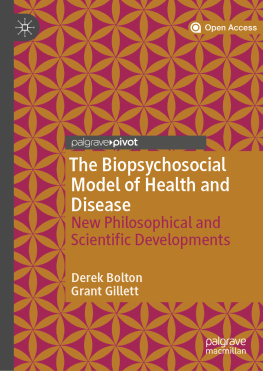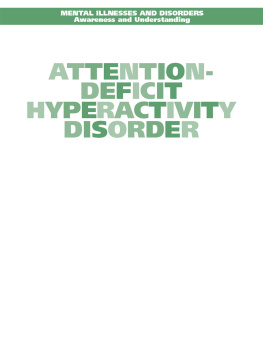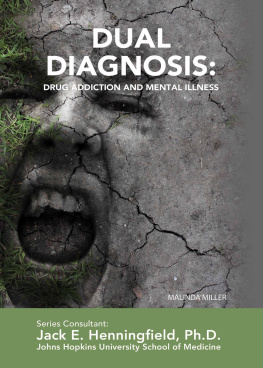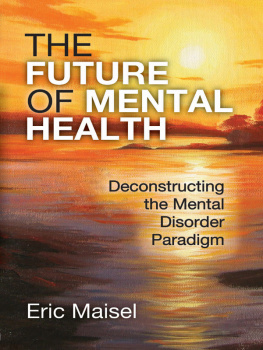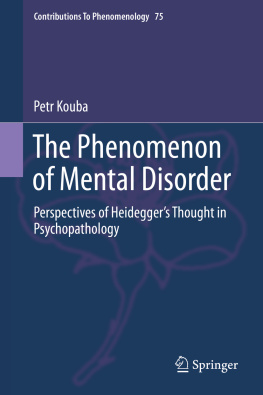Epigraphs
What health and illness mean in general are matters which concern the physician least of all. He deals scientifically with life processes and with particular illnesses. What is ill in general depends less on the judgement of the doctor than on the judgment of the patient and on the dominant views in any given cultural circle.
Karl Jaspers
The fact is that any definition of disease which boils down to what people complain of, or what doctors treat, or some combination of the two, is almost worse than no definition at all. It is free to expand or contract with changes in social attitudes and therapeutic optimism and is at the mercy of idiosyncratic decisions by doctors or patients. If one wished to compare the incidence of disease in two different cultures, or in a single population at two different times, whose criteria of suffering or therapeutic concern would one use? And if the incidence of disease turned out to be different in the two, would this be because one was healthier than the other, or simply because their attitudes to illness were different?
Robert Kendell
Preface
The question of mental disorder is a curious one. On the one hand, the main groups involved have other problems to solve. Psychiatrists focus on their main task the diagnosis and treatment of the problems people bring to the clinic and they can get on with this without worrying too much about what mental disorder really is; it is just assumed or known that the problems are mental disorders, and there is no need to be held up. Researchers in the sciences basic to psychiatry are clear about their main task of constructing causal models of the conditions of interest, but they do not need to assume that what they are studying are mental disorders in one sense or another, or that they are mental disorders at all. A particular kind of condition may turn out to involve, for example, brain disease, or expressions of normal traits in problematic environments, or perhaps normal at a particular age but these options are a matter for the science and not assumption from the start. The other potential stake-holders in this problem are the people who at some time or another use mental health services and therefore receive a diagnosis of some mental disorder, and their parents, brothers, sisters, partners and children, who all together make up probably half the population, but their immediate concerns are managing and getting help, and this is not what this essay is about.
In this way to spend time with the question of mental disorder is idling, off main task. On the other hand, the question matters much. Psychiatrists and other mental health professionals in some social and clinical contexts have to be clear about why some conditions are considered to be mental disorders and others not, about what the distinction is meant to be, and about related questions such as why psychiatric treatments are appropriate for some conditions and not for others. These same questions involve the users or potential users of mental health services. In constructing causal models of the conditions of interest, the basic sciences become involved with constructs that are essentially involved in the notion of mental disorder, such as what is normal or abnormal in the population, typical or atypical, the effects of lesions and disease processes and adverse environments, and the meaningfulness or otherwise of people's responses to them. The public interest is in the way psychiatry carries out the task of demarcating mental disorder from mental order, and in the fact that society assigns it this task, even though psychiatry for its main purposes hardly needs to worry about its meaning. Some way along in the development of the manuals for diagnosis of mental disorders the American Psychiatric Association's DSM and the World Health Organisation's ICD there was a need for a definition of what mental disorder is, for the purpose, among other things, of being clear why certain conditions should be included in them and others should excluded. Much hung on this, questions of whether difference or disadvantage or life-style choice was being pathologised and disqualified, questions of provision of services and funding for treatment large scale social and economic questions, matters of public policy.
So the topic of this essay has a curious status, barely visible yet of widespread importance, many-sided and immensely complex. This I say partly by way of apology that my attempt to address it in this essay and the conclusions reached are not as clear as I would have liked. The place the essay has ended up can be described as sceptical a scepticism of the gentle variety. Having considered the ways in which mental disorder is understood in psychiatric practice, the explicit definitions in the diagnostic manuals, and bearing in mind the clinical problems that they characterise, and having examined the more elaborate, rigorous definitions in the surrounding literature, the most influential of which is due to Jerry Wakefield, and the sociological approaches, and the paradigms and general findings of the current science there ends up being, so far as I can see, no stable reality or concept of mental disorder; it breaks up into many, quite different kinds, some reminiscent of an old idea of madness or mental illness, others nothing like this at all. This instability and fragmentation corresponds to diversity in the phenomena, in current clinical services, and in current terminology. I would have settled for one clear proposal as to what mental disorder really is, but couldn't find one.
That said, the scepticism is just about whether there is something stable, fixed and distinctive here, for which mental disorder is a suitable name. It does not include doubts about the reality of the phenomena: the distress and disabilities that people bring to the clinic, and the need for psychiatric, or more generally mental health professional care. The domain of healthcare as a response to personal distress and disability seems to me permanent, only mistakenly seen as something to be deconstructed away. There may be no clear basis for distinguishing between mental health problems and social problems, or between mental health problems and normal more or less normal problems of living, but what distinguishes healthcare is the response to the person involved. The response is care for the individual, based on professional training, science and expertise, distinct from social or political action, or religious judgement, or demands for self-reliance. By all means there is then a debate to be had as to the pros and cons of one kind of response as opposed to another, a debate involving many stakeholders, with some clear cases, and many controversial boundary issues, but healthcare has a permanent seat in the debating chamber.
I have brought to this essay various parts of my life. I read philosophy at Cambridge and went on to doctoral and post-doctoral work on Wittgenstein, following which I read psychology and trained in clinical psychology at the Institute of Psychiatry and Maudsley Hospital in London. Subsequently I have worked there as a clinician for many years in various settings, mostly in child and adolescent services, mainly in-patient and more recently out-patient. My research interests have been mainly in obsessive compulsive disorder and other anxiety disorders, including recently behavioural genetic modelling and treatment studies. The Institute of Psychiatry and Maudsley Hospital have been great places to work and to learn, full of people with enquiring minds with a wide variety of clinical and research ideas and expertise without this educational environment I never could have attempted such an essay, and I hope the result does it some justice. The same applies for my experience in the clinic over many years working with the children, adolescents, parents and families with many kinds of problems my gratitude is to them for teaching me about the reality and the details of these conditions and how they can be managed. At a personal level I have suffered from a stammer life-long, speech-long, one of the conditions in the psychiatric manuals of mental disorders, which figure large in this essay. A stammer produces characteristic communication difficulties and associated emotional problems which I have had to live with and for which I had many kinds of speech- and psycho-therapy at various periods, all of which helped, until finally several decades ago for some reason at that stage in my life I stopped minding and have been better since. I learnt much from all this, about a fraction of the great variety of mental health problems from the inside, and the complications of internalised social exclusion, and the subtleties of change, in and out of therapy.


